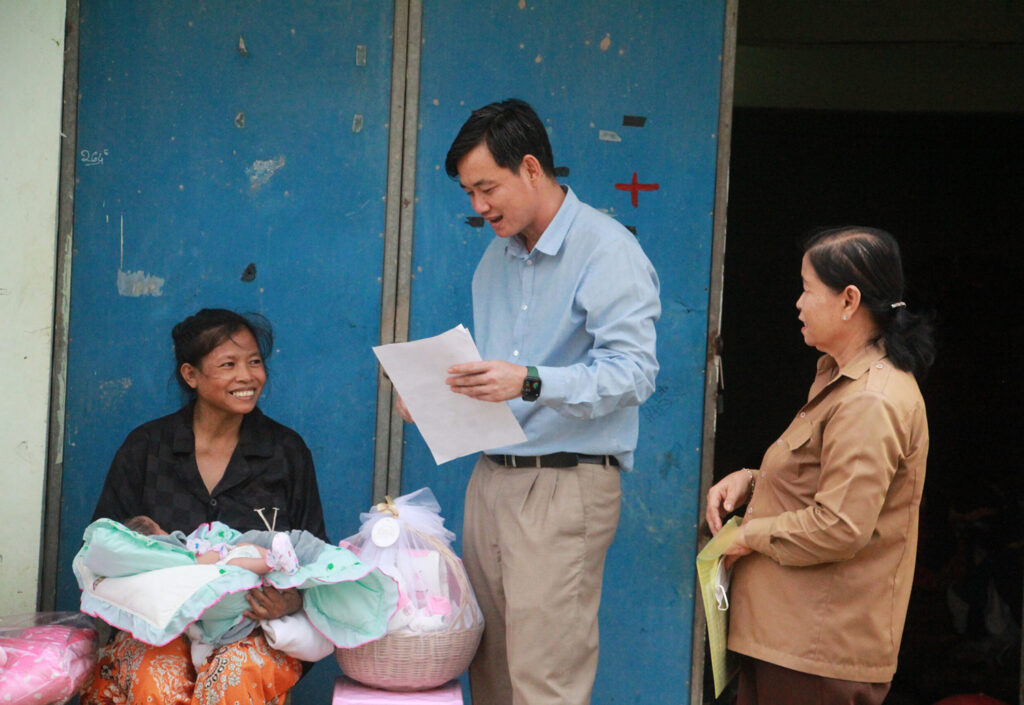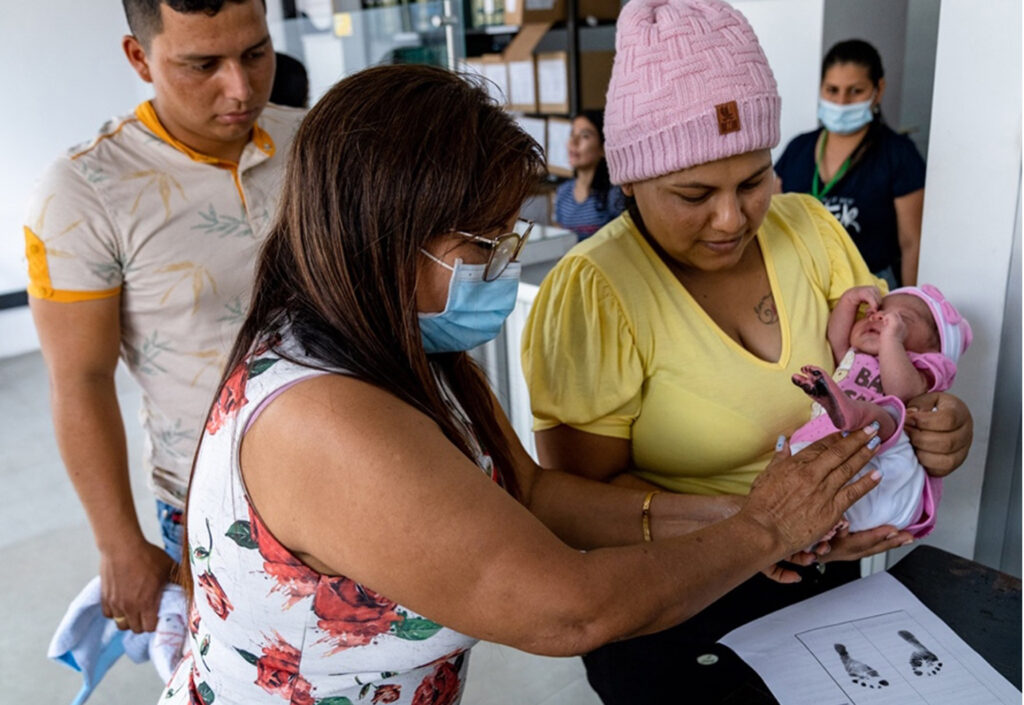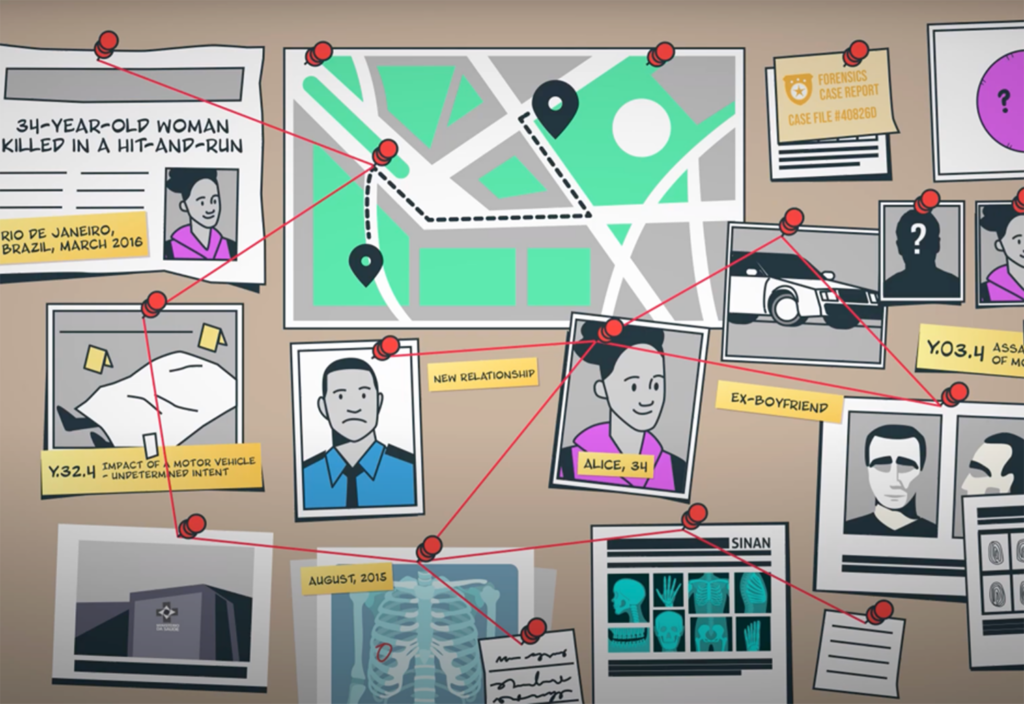
We work with our partners to identify the most pressing health issues that countries and communities face and devote our extensive experience to supporting them in tailoring proven solutions to their local context.
In 2023, we collaborated with local government and civil society partners across more than 80 countries to build programs and policies that help millions of people live longer, heathier lives.
Our annual report, “Catalyzing Change Through Partnerships,” spotlights a few of these collaborations to show how these partnerships can create long-term public health impact.
Below are four highlights from our work around the world.
Transforming Lives Through Data

Birth and death registration is essential to granting the benefits of legal identity for people, ranging from health care and education to inheritance rights.
In Colombia, our Civil Registration and Vital Statistics team and the national government have been seeking to ensure that all vital events—even those among people who are hardest to reach—are captured.
Cambodia’s CRVS and Identity Management (CRVS-ID) law guarantees civil registration for all 16.8 million people living in Cambodia. In partnership with Vital Strategies, every vital event will now be registered, enabling everyone residing in the country to prove their legal identity, guaranteeing key human rights.
Read more about how we’re making everyone count by counting everyone.
Building Local Solutions for Clean Air and Health

More than 90% of the people in the world breathe unhealthy air, stunting children’s growth, contributing to illnesses such as asthma and lung and heart disease, and killing 5 million people every year. From Indonesia to India, our work has shown how the health sector can accelerate action on air pollution and climate.
We also partnered with BBC StoryWorks to produce “The Data Healing the Lungs of a City,” a film sharing the stories of people living in Jakarta and how air monitoring stations are helping them access data on air pollution so they can reduce their risk.
Read more about our Clean Air and Health success stories and watch the film.
Advancing Gender Equity With Data

Our gender equity-focused work spans multiple programs and countries.
Around the world, millions of cases of violence against women remain unreported and uncounted and the victims remain invisible. In Brazil, gender-based violence cases usually only come to light when they are reported to the police or a victim is admitted to the hospital. We’re partnering with local authorities to use AI and data pairing to identify possible victims of violence so authorities can intervene early.
Our work in India analyzed autopsies of 1,460 women in Mumbai, finding 12% had a history indicative of gender-based violence and that most deaths occurred by suicide. It led to a new committee to formulate an action plan to prevent gender-based violence and empower survivors.
See more of our work advancing gender equity through better data.
Confronting the U.S. Overdose Crisis With a Public Health Approach

Decades of research has shown that harm reduction strategies, such as access to safe drug use supplies and naloxone, reduce rates of overdose among people who use drugs, while punitive measures, like criminalization and incarceration, increase the risk of overdose deaths and create a more dangerous drug supply.
We partner with governments, providers and communities across the United States to advance health-centered solutions that engage communities, channeling opioid settlement funds so they have the greatest impact to support people who use drugs and enable wider access to lifesaving medications.
Read more about our Overdose Prevention partnerships and work.